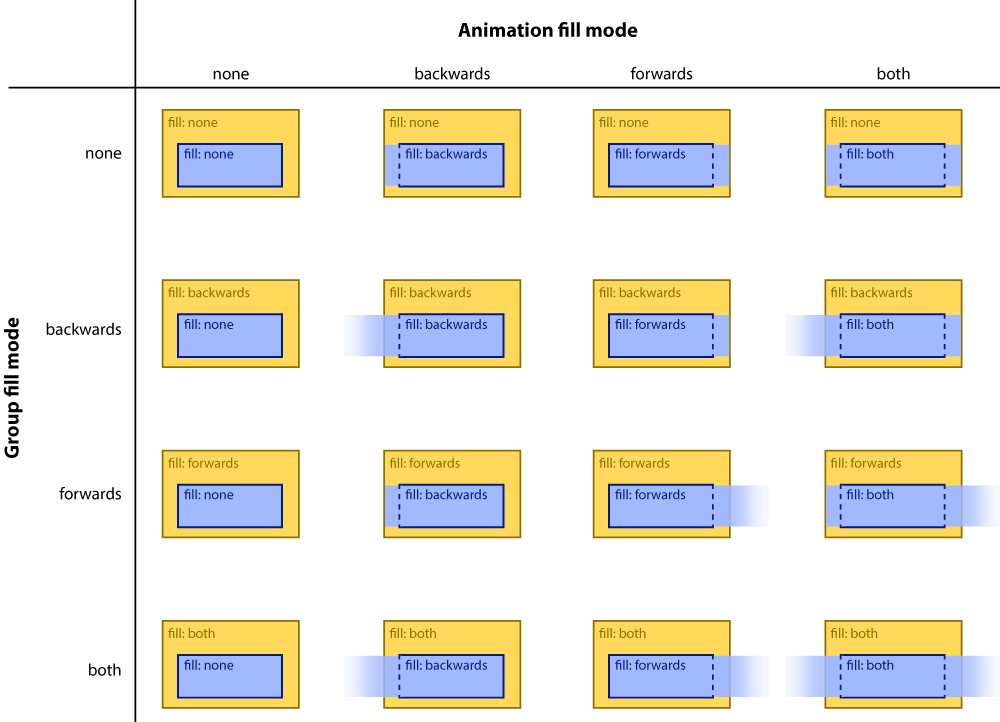- From: Brian Birtles <bbirtles@mozilla.com>
- Date: Fri, 02 Aug 2013 15:15:44 +0900
- To: "public-fx@w3.org" <public-fx@w3.org>
- Message-ID: <51FB4E90.70901@mozilla.com>
Dear public-fxers,
Fill modes are a feature available in both CSS and SVG animations that
allow the first or last value of an animation to apply either before,
after, or both before and after the animation itself.
We had some trouble determining what the default fill mode should be for
the Web Animations API, as there are good arguments for making it none,
both, or some 'auto' value.
On the one hand, the Web Animations API fill mode should default to
'none' to match the defaults of CSS and SVG Animations. This will reduce
the number of surprises web authors encounter when refactoring code from
CSS or SVG into script using the Web Animations API.
On the other hand, our experience is that 'both' tends to be the fill
mode used 80% of the time in practice when generating animations using
script. Furthermore, when using timing groups[1], we have the following
arrangement:
child fill mode: 'none', parent fill mode: 'both' -> no fill
child fill mode: 'both', parent fill mode: 'none' -> no fill outside
the bounds of
the parent
In order for a child of a group to fill indefinitely in a given
direction, both it and all its ancestors need to fill in that direction.
On the other hand, in order for a child of a group to not fill, only
that child needs to specify a fill mode of 'none'.
Switching from 'none' to 'both' requires changing values throughout an
animation tree, whereas switching from 'both' to 'none' can be done locally.
For a more complete and graphical description, please see the attached
image.
We considered three options:
(1) choose a default fill mode of 'none' to match CSS and SVG?
(2) choose a default fill mode of 'both' because it makes the API
easier to use?
(3) add an 'auto' fill mode that defaults to 'none' for animations
(matching CSS and SVG) but 'both' for groups (making it easier to switch
animations from 'none' to 'both')?
After some discussion we think (3) is probably the best option but if
anyone has any feedback regarding this, we would be glad to hear it.
Best regards,
Brian
Attachments
- image/png attachment: grouped-fill-modes.png

Received on Friday, 2 August 2013 06:16:13 UTC